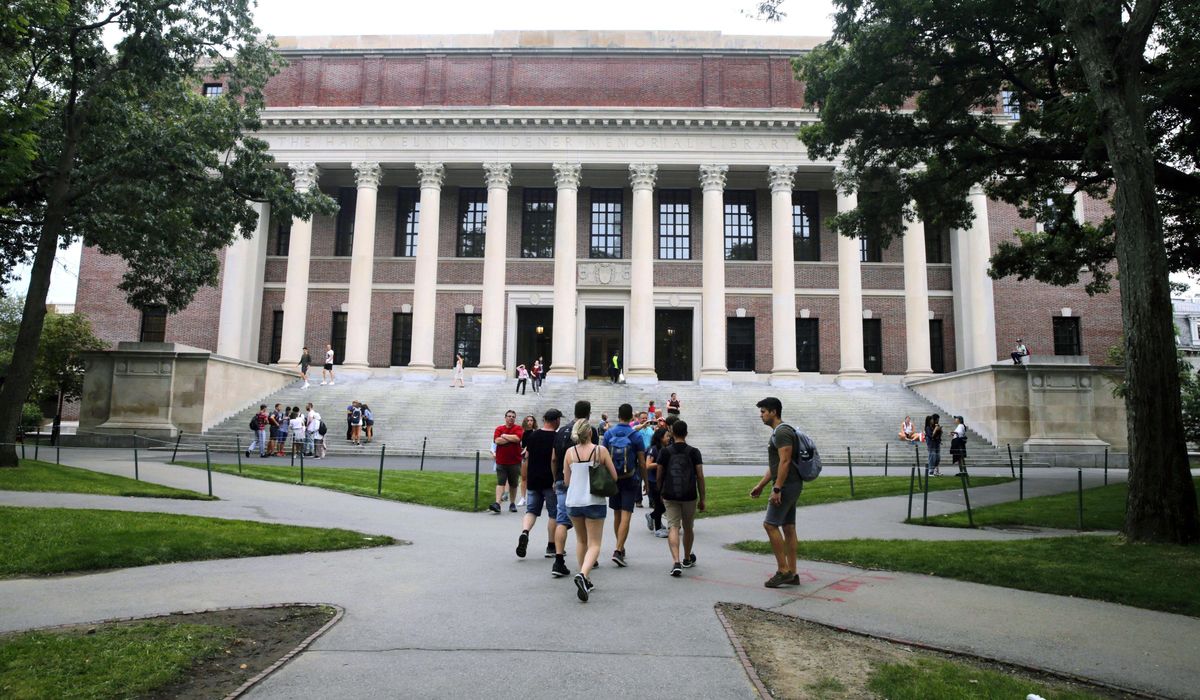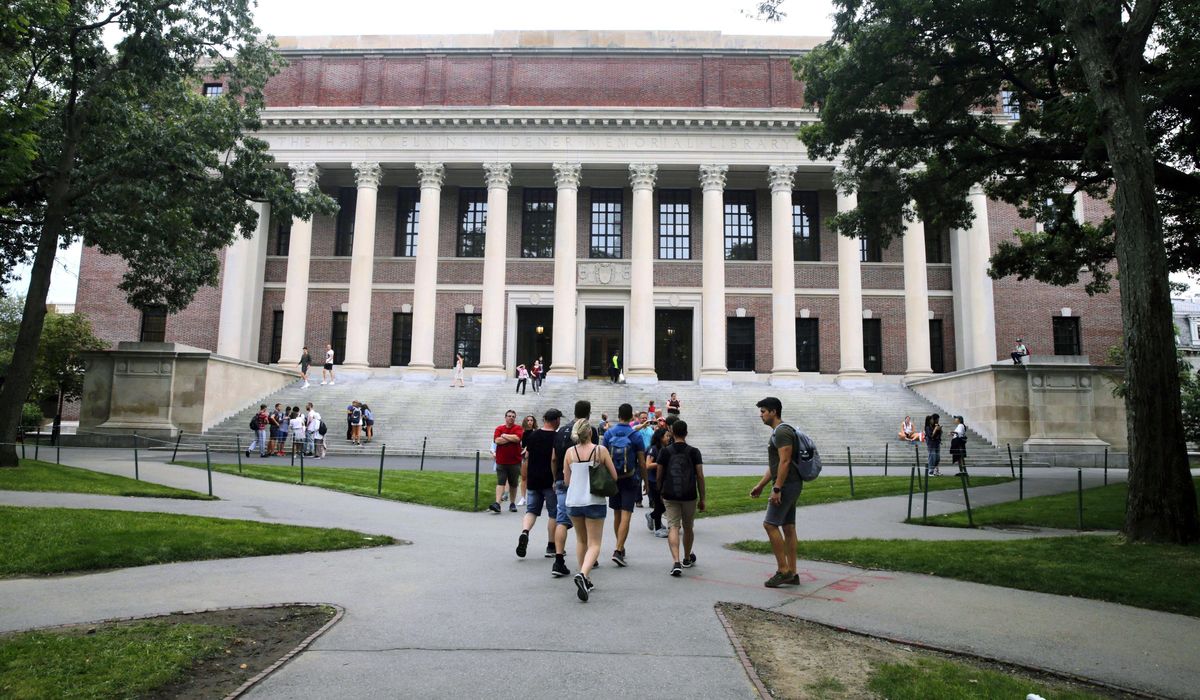
U.S. college students place a high value on First Amendment principles but feel increasingly uneasy for different ideological reasons about free speech on campus, according to a survey released Tuesday.
More than half of student respondents (59%) to the Knight-Ipsos poll said college campuses should let them be “exposed to all types of speech” even if they find it offensive or biased.
Republicans (71%) and White respondents (65%) were more likely to agree with that statement than independents (57%), Democrats (55%), Black students (47%) and Hispanics (45%), who said they feel unsafe under the First Amendment.Evette Alexander, director of learning and impact at the nonprofit John S. and James L. Knight Foundation, said the poll reflects a trend since 2016 of college students feeling insecure about campus free speech for racial and political reasons.
“Since 2016, we’ve seen a drastic decline in students that think freedom of speech is secure, including a sharp drop among Republican students over the past year,” Ms. Alexander told The Washington Times. “We also see students of color feeling less protected by the First Amendment. This is a wake-up call that various groups feel that their speech rights are vulnerable today.”
The poll is the latest in a two-decade research series into college students’ attitudes toward free speech and the First Amendment.
The Knight Foundation said recent trends in campus dialogue include increased free speech restrictions related to racial justice protests, COVID-19 and the 2020 presidential election.
“In recent years, this dialogue has grown more fraught as some schools have sought to create a more protective speech environment for students,” the foundation wrote in a summary. “Moreover, key events shaping the past two years, such as the COVID-19 pandemic, the racial justice movement and the 2020 election, have only added deeper dimensions to the dialogue around free speech playing out on campus and in society at large.”
The foundation, a nonprofit that funds community, journalism and arts grants, said it commissioned the survey series to provide “critical data” to college administrators on students’ attitudes regarding free speech.
“College campuses are robust environments of change, learning and conversation,” said Alberto Ibargüen, president of the Knight Foundation. “If we are to have a vibrant First Amendment, it has to be embraced by succeeding generations.”
A summary of the survey results said they “reinforce that college students express a strong belief in free speech principles, mirroring recent Knight findings on the views of the broader American public.”
It noted that a Knight-Ipsos poll of U.S. adults on the same survey questions, released Jan. 6, found the same political and racial divisions among Americans more generally.
“While most Americans feel they enjoy First Amendment protections around their speech rights, some groups feel notably less secure,” said a summary from Jan. 6. “Black or African Americans, in particular, are much less likely to report that they feel protected by the First Amendment.”
In the poll released Tuesday, 47% of students said free speech rights are secure in society. That percentage has fallen every year since Knight-Ipsos first asked the question in 2016.
“This includes a drop of 12 percentage points between 2019 and 2021, driven primarily by declines among Republican students,” the foundation said.
According to the foundation, “students of color are also more likely to feel uncomfortable and unsafe due to speech on campus.” Only 5% of Black students feel the First Amendment protects them a great deal, a drop of 20 percentage points since 2019.
Knight found that 65% of college students — a “steadily growing majority” — agreed strongly or somewhat that “their campus climate prevents some people from saying things they believe because others might find the remarks offensive.”
Only about half of students said they felt comfortable “voicing disagreement” with their instructors (49%) or peers (52%) in class.
The report, “College Student Views on Free Expression and Campus Speech 2022,” is part of the Knight Free Expression (KFX) Research Series. It builds on 18 years of surveys on free expression issues in America.
Ipsos conducted the survey from July 30 to Aug. 16 using the online KnowledgePanel platform with a nationally representative sample of 1,023 college students, ages 18 to 24, enrolled in all types of higher education institutions. The margin of error was 3.3 percentage points at the 95% confidence level.
At the same time as this survey, the public opinion firm surveyed 4,366 American adults, allowing the Knight Foundation to compare college students’ free speech views with those of the general public.








